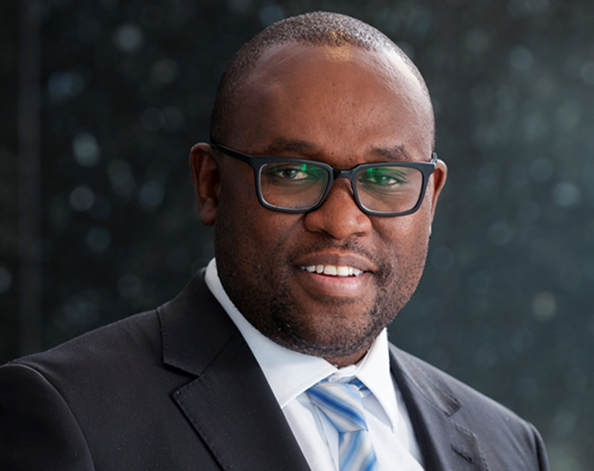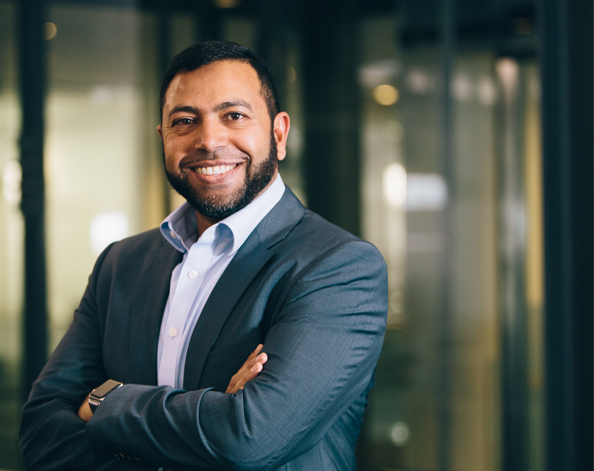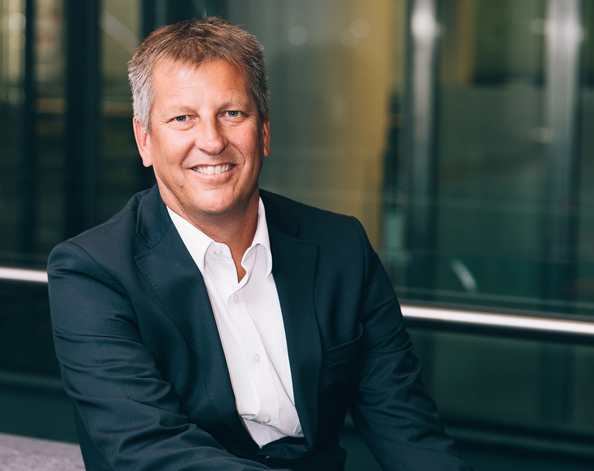Receive Focus insights straight to your inbox
“We know that the sun will burn for about another five billion years. And because wind, solar, hydro and biomass all derive their energy from it, they are limitless sources of power.”
That’s what renewable energy means to Dieter Matzner, a power and infrastructure specialist at Investec Bank. His definition was heard during a four-part podcast series hosted by Revego Fund Managers (RFM) who make investments into and operate renewable energy projects in Sub-Saharan Africa.
Investec has been closely involved with RFM, a majority black-owned fund manager, since its formation, and remains a key partner in the Revego journey.
The podcast series pooled together industry experts to discuss the prevailing renewable energy landscape, the role of Independent Power Producers (IPPs), and the investment case for the renewable energy asset class ahead of the upcoming JSE listing of the Revego Africa Energy Fund.
While the renewable energy resources may indeed be ‘infinite’, our ability to harness them has, so far, been relatively limited.
Podcast 1: Renewable energy demystified
The panel unpacks the concept of renewable energy and where it fits into the overall energy universe. They also discuss why renewables could be the solution for reducing the world’s dependence on fossil fuels and why Africa can drive that change.
With great power comes great responsibility
South Africa is truly blessed with natural resources. First, it was the poly-metallic riches found beneath our soils; now, it’s the bottomless supply of renewable energy resources.
Our problem has never been a shortage of natural resources – it’s that we can’t seem to collaborate properly to make the most of them. The South African renewable energy sector is not immune to this longstanding quarrel.
Abel Mjiyako, Chief Technical Officer at RFM, summed up this issue when he said: “The amount of sunlight we have is far greater than that in Europe, and yet, as a percentage, solar contributes more to their total energy mix than it does to ours.”

The amount of sunlight we have is far greater than that in Europe, and yet, as a percentage, solar contributes more to their total energy mix than it does to ours.
With such an enviable supply of wind and sunshine, and existing technologies that can harvest them in a cost-effective manner, our energy consumption is more heavily skewed towards coal than it should be. We find ourselves in this position for two overriding reasons:
1. The government and private sector have lacked a cohesive approach needed to create an optimal environment for renewable energy projects to thrive.
2. The investment needed to design, construct, and operate renewable energy infrastructure has been tentative because of the risks involved.
The ease and familiarity with which we refer to ‘load shedding’ is evidence enough of the urgent need to overcome these hurdles. And then there’s the bigger picture in which we must transition to cleaner energy to stop climate change.
Often, doing the right thing requires sacrifice. A move to renewable energy doesn’t.
Not only will it bring down the cost of our electricity over time and help humanity avoid the malevolent effects of a warmer planet, but it’ll also help to address social issues like unemployment, along with the ills that come with having no access to power.
Michael Meeser, Chief Investment Officer at RFM, puts numbers to what is simultaneously a challenge and an opportunity for renewable energy: “From the information we have, there are 600 million people in Sub-Saharan Africa that don’t have access to reliable energy.”
The crux of the matter is that South Africa – and indeed the African continent – needs more power. Our private sector, alongside supportive foreign stakeholders, has the will, skill, and capital necessary to develop the substantial renewable energy resources on our doorstep.
Podcast 2: Building, owning and operating an IPP
In this episode, our panellists discuss the IPP landscape, the role they play in meeting energy demand and the specific requirements and challenges of operating an IPP.
A promising renewable energy blueprint
IPPs build, maintain and operate power generating facilities. They are the conduit through which the majority of our renewable energy will be produced. And they have a vital role to play in South Africa’s future given the inability of the existing state infrastructure to provide an adequate supply of power.
In coming to terms with the IPP landscape, it helps to understand their different shapes and sizes. Ziyaad Sarang, Chief Financial Officer at RFM, offered the following distinctions during the second podcast:
- You get utility-scale, off-grid, and self-generation IPP projects.
- Utility-scale projects are the most common and feed upwards of 5-10 MW of power into the national grid.
- Off-grid projects generate anything between 5-20 MW of power and would include the development of a mini-grid to distribute its power to end users.
- Embedded or self-generation projects can include anything from a household solar installation to a fully-fledged IPP that supplies power directly to large consumers of energy, like a mine or smelting plant.
“Utility-scale IPP projects that plug into the grid, supplying power to Eskom, have been successfully deployed in South Africa and we expect investment into these IPPs to continue. We are also seeing good interest in the self-generation space thanks to government signalling its intention to raise the amount of power that can be produced without a license,” said Sarang.

Utility-scale IPP projects that plug into the grid, supplying power to Eskom, have been successfully deployed in South Africa and we expect investment into these IPPs to continue.
Since inception of the Renewable Energy Independent Power Producer Procurement (REIPPP) programme in 2011, a total of 102 IPP projects have been procured by the IPP office through a bidding process.
IPP developers submit bids – during the allotted windows, of which there have been four – that not only state the tariff they would be willing to accept from government per unit of electricity, but also detail what social impact they would affect in terms of job creation and economic transformation.
While not perfect, the programme has had enough success to serve as a blueprint for further co-operation between the public and private sectors in clean energy generation. This outcome must not be taken for granted; getting IPPs off the ground remains a tricky business.
Mohamed Hoosen, Head of Power & Gas at ENGIE Africa alluded to this during the second Revego podcast, “These are 20-year investments that need to be made in an environment of strong fiscal and regulatory frameworks in order to provide the necessary contractual certainty on which IPP investment cases rest. In addition, the state-owned utility needs to welcome the entrance of private sector competition.”
These conditions may be scant in the rest of Africa, but there’s some evidence that the environment in SA is conducive to further IPP development.
Indeed, the REIPPP programme has made available around 6,500 MW of renewable power, attracting more than R200 billion in investment and creating some 40,000 jobs. Government wants to up that renewable figure to 20,000 MW by 2030. That would push the contribution of renewables to our energy mix beyond 30%.
It’s a bold, aspirational proposition. And it’s going to require a lot of investment.
Podcast 3: Giving investors access to growing renewable sector
Renewable energy is an obvious area for investors looking to get exposure to one of the most important investment themes of our times. Yet the local landscape for investing in renewables is limited at the moment. In this episode, the Revego team explains the investment structure of the fund and the type of investor likely to invest.
Renewables – now investable
Investing in renewable energy has, up until very recently, been reserved for a niche cohort of investors with the necessary risk appetite, deep industry knowledge, and substantial bank balances needed to turn wind, sun and the like into power.
But as more of these projects reach what’s known as their commercial operation date (COD) – where they start to produce electricity and cash flows – the renewable energy investment case suddenly makes sense for a much broader spectrum of investors.
And this is where Revego Fund Managers fits in. Mike Meeser elaborates in the third podcast:
“The gap we identified is that many of the developers and entrepreneurs who get involved early in these projects don’t necessarily want to be involved long-term. The IPPs also need to be majority South African and black-owned, and RFM ticks both those boxes as a potential shareholder. Finally, there is a growing number of investors who want exposure to the renewable energy asset class but are unwilling or unable to take the development risk that characterises early-stage investment.”
Revego Africa Energy Fund is the continent’s first renewables yield company or yieldco, the definition of which succinctly summarises what they do; a yieldco is a company formed to own operating assets that produce a predictable cash flow, primarily through long-term contracts.
It pays to remember that every IPP will have a long-term (5-20 years) power purchasing agreement (PPA) signed with Eskom. This gives investors like Revego the luxury of being able to forecast IPP cash flows with some measure of confidence.
Their model is to buy equity stakes in renewable energy IPPs post-construction.
This substantially de-risks the investment because they are able to assess the efficiency of the plant, how much power it’s producing, and what the potential offtake will be.

There is a growing number of investors who want exposure to the renewable energy asset class but are unwilling or unable to take the development risk that characterises early-stage investment.
Currently, Revego Africa Energy Limited has three cornerstone investors, namely Investec, UK Climate Investments (a joint venture between the Green Investment Group and the UK government's Department for Business, Energy and Industrial Strategy) and the Eskom Pension and Provident Fund. Between them they’ll invest over R1 billion in Revego when it is listed on the JSE. But according to Reyburn Hendricks, Chief Executive Officer at Revego, the vision is much bigger:
“The intention is for Revego to gain significant scale, into the tens of billions, and with that growth, diversify across renewable technologies, sponsors, regions, and currencies.”
Currently, Revego has assets worth R1.417bn, while the value of the listed entity at R1.511bn.
Through their renewable energy investments, Revego will receive dividends based on the underlying IPP cash flows that result from supplying electricity to Eskom. Once they list on the JSE, those steady dividends will be accessible to institutional investors, unit trusts, and retail investors.
Many of them might find the Revego proposition enticing.
Podcast 4: Earning an attractive yield while building the renewables sector
There is a lot of jargon in the market when it comes investing in the renewables sector. In this episode, we cut through the noise and highlight the key things investors should look at when considering an investment in a yieldco.
Doing good, earning good
In the last podcast of the series, Investec's Jarrett Geldenhuys, head of Equity Capital Markets and Marnus Terblanche in Corporate Finance were joined by Ziyaad Sarang to explore the benefits of investing in yieldcos like the Revego Africa Energy Fund and the renewable energy asset class in general. A summary of those benefits follows:
Stable asset class: Long-term PPAs or power purchase agreements that are signed up with large utilities generally produce very stable, predictable cash flows that are paid out as dividends to the individual investors. Yieldcos purchase shares in these renewable energy companies and therefore represent a stable asset class that pays out predictable dividends to their investors over long periods of time.
Broader access: Yieldcos allow individual man-on-the-street investors access to an asset class that would ordinarily not be available to them to invest in due to traditionally high barriers of entry.
ESG considerations: Typically, the underlying companies involved in renewable projects are subject to very strict Environmental, Social and Governance (ESG) requirements. For this reason, a yieldco such as Revego would fit naturally into the portfolio of any ESG conscious investor. And it also makes business sense, says Sarang: “There are a number of studies that show that companies with strong ESG fundamentals, outperform traditional companies.”
Inflation hedge: The nature of power purchasing agreements (PPAs) means that the tariffs paid to IPPs for the electricity they supply will likely be subject to inflation-linked increases over time. In turn, the dividends that flow to yieldcos invested in this sector and their shareholders will benefit from the same protection against inflation.
Potential for growth: As the IPPs pay down the debt used to finance their development, more of their cash flows will be available for distribution, meaning that the dividends collected by yieldcos in this space will grow over time.
Better liquidity: Compared to other entry points into the renewable energy asset class, yieldcos’ publicly traded shares provide vastly improved liquidity for investors keen on exposure to the asset class.
Nothing lasts forever. But we’ve long since past the point of no return when it comes to our reliance on power; our demand for energy looks set to rise into perpetuity. The question now is how best to produce it.
It’s hard not to get excited about renewable energy answering that call. There exists the potential to simultaneously eradicate powerless communities (in both senses), create a safer world for us to inhabit, and make decent investment returns.
All we need is for the sun to keep shining.




